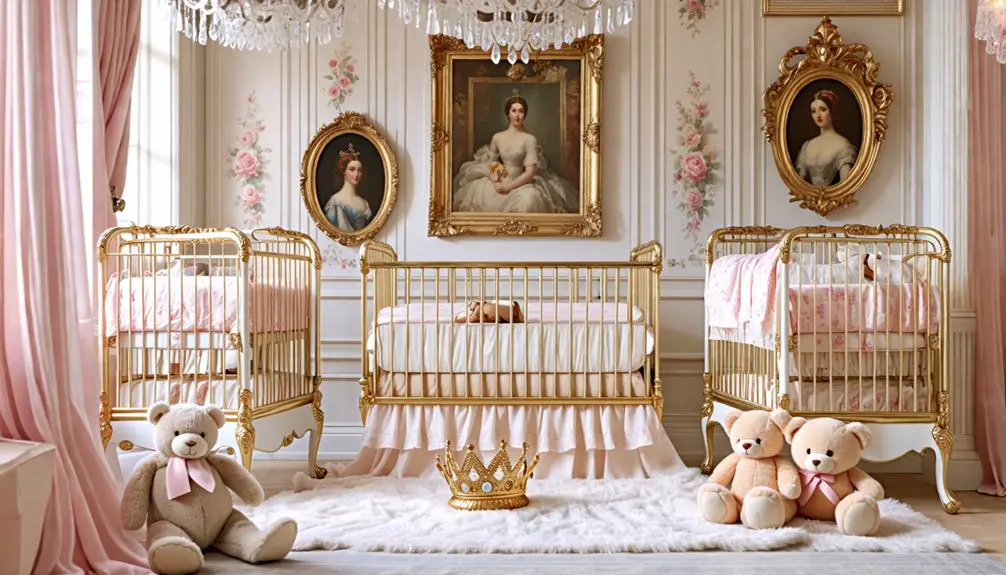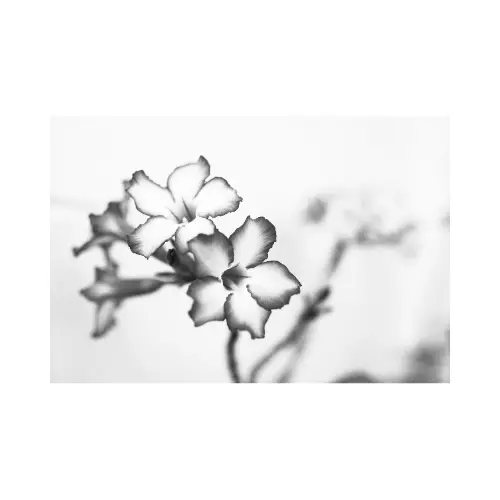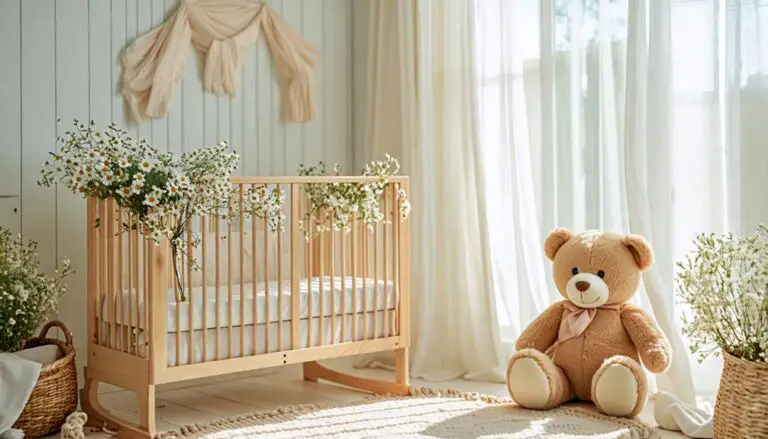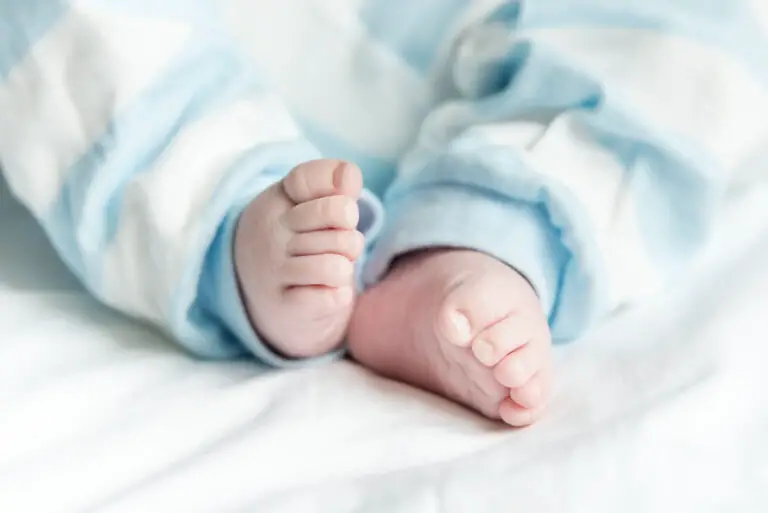Royal Baby Names Throughout History
Royal baby names throughout history reflect rich traditions and cultural significance. These names often honor past monarchs, showcasing a connection to lineage and stability. Names like George, Charlotte, and Elizabeth illustrate the blend of classic charm with modern trends. Historical shifts, like Queen Victoria's influence, have shaped naming preferences, moving toward a mix of traditional and contemporary choices. Today, names like Archie and Zara symbolize this evolution. The fascination with these names highlights societal changes and royal family values, keeping public interest alive. For a deeper understanding, you'll discover compelling stories behind these names and their meanings.
Historical Context of Royal Names
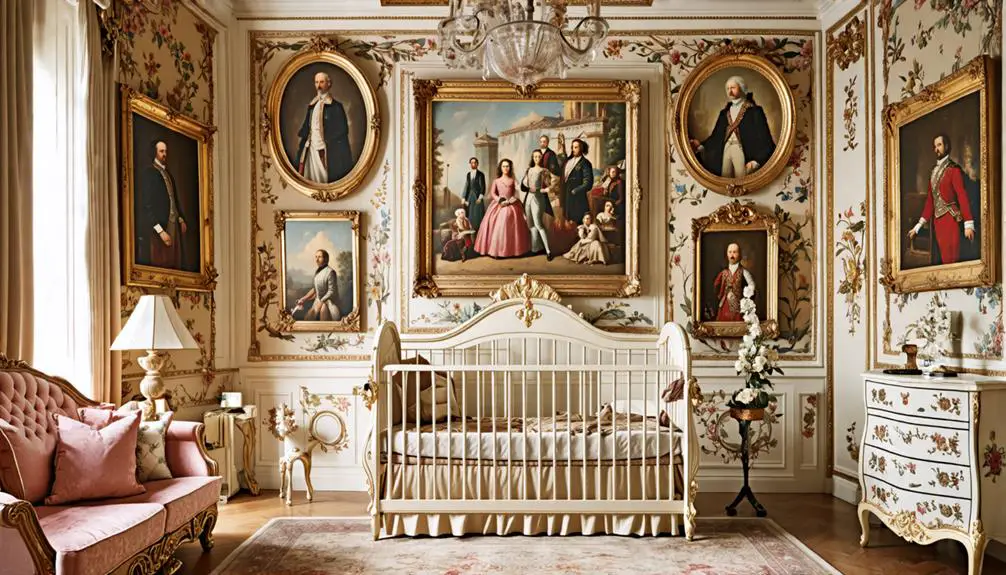
Throughout history, royal names have reflected the shifting tides of culture, power, and familial legacy, shaping how we view monarchy today.
The British royal family's naming traditions trace back to the Anglo-Saxon era, where names like Edward and Harold emerged. The Norman dynasty later introduced names such as Henry and William, illustrating the evolving influences on royal identity.
During the Medieval and Renaissance periods, marriages expanded the naming pool, with names like Eleanor and Isabelle symbolizing strong ties between families.
Queen Victoria played a pivotal role in this evolution, naming her children after relatives to distance her lineage from Hanoverian roots, resulting in numerous granddaughters named Victoria.
Each name choice reveals the intricate tapestry of royal lineage and tradition.
Influences on Naming Traditions
Royal naming traditions are shaped by a blend of historical lineage, cultural ties, and modern influences, creating a dynamic landscape for how names are chosen.
The British royal family often reflects its heritage through names that honor past monarchs, ensuring a sense of stability. Queen Victoria significantly influenced her family's naming practices by choosing names that distanced them from Hanoverian roots, favoring relatives instead.
This tradition continues today, as modern royals balance classic names with contemporary choices, like Zara, Princess Anne's daughter. Additionally, popular names like George and Charlotte have emerged from media attention, prompting broader public adoption.
Consequently, the influence of tradition, family ties, and modern preferences shapes the ever-evolving domain of royal names.
Modern Trends in Royal Names
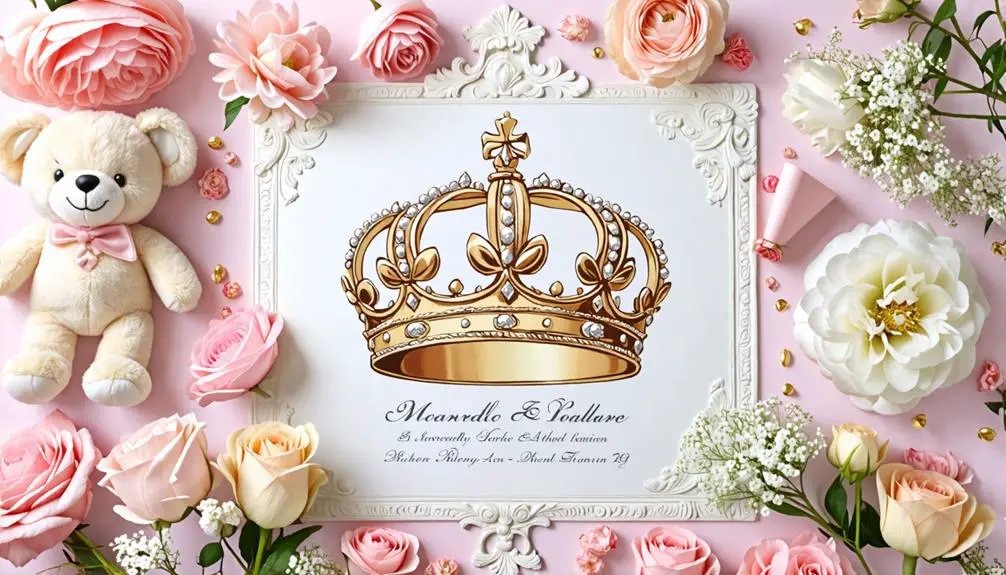
Modern royal names are increasingly reflecting personal significance and contemporary cultural influences, moving away from traditional choices to embrace unique options.
For instance, Prince Harry and Meghan Markle chose the name Archie for their son, emphasizing meanings like 'strength' and 'bravery.' Their daughter's name, Lilibet, honors Queen Elizabeth II but raised eyebrows among some family members, showcasing the debate on modern naming conventions.
Similarly, Princess Anne's selection of Zara for her daughter in 1981 surprised many, signifying a shift in royal naming traditions.
Today, modern royal names balance heritage with innovative preferences, resulting in a blend of classic and contemporary names that resonate with the current cultural landscape, reflecting the evolving identity of the royal family.
Public Interest in Royal Names
Interest in the names chosen for royal babies sparks widespread fascination, with many enthusiastically speculating and wagering on potential choices even before official announcements.
This public interest in royal baby names stems from their historical significance and connection to family history. For instance, names like Prince George and Princess Charlotte have become popular, influencing naming trends across the globe.
Each royal name reflects a blend of tradition and modernity, drawing attention not just from royal watchers but from the general public as well. The surprise of names like Zara showcases this cultural fascination, highlighting how royals navigate between conventional and contemporary choices.
Ultimately, the anticipation surrounding each announcement keeps everyone keenly engaged in the royal naming process.
Future Directions for Naming Practices
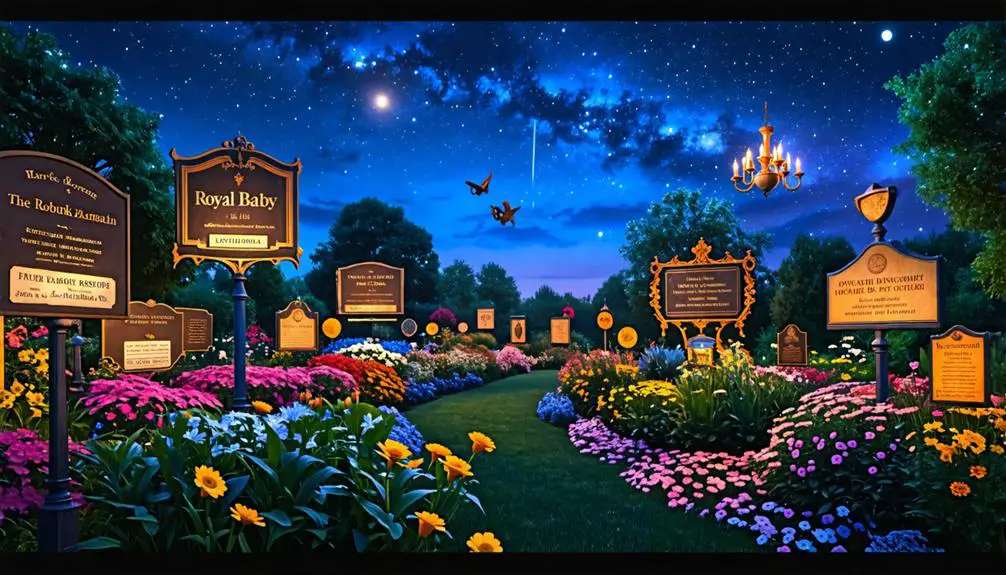
As King Charles III ascends to the throne, you can expect a shift in naming practices that may embrace both tradition and contemporary influences.
Future royal baby names are likely to reflect personal preferences of the royal family, merging modern trends with historical significance.
Expect to see a resurgence of traditional names alongside innovative choices, as seen with Archie and Lilibet.
The royal family may increasingly adopt gender-neutral names, reflecting broader societal shifts toward inclusivity.
Additionally, the influence of diverse cultural influences will shape naming practices, allowing for a rich blend of meanings and heritage.
This evolution in royal baby names could ultimately redefine how we perceive tradition in the context of a changing world.
Importance of Royal Names
Royal names carry deep significance, representing the ideals, heritage, and aspirations of the monarchy while influencing public perception and cultural identity. The importance of these names lies in their connection to noble lineage and historical significance.
When you hear a regal name, it often evokes a sense of dignity and authority, reminding you of the responsibilities that come with such titles. Timelessness is key; many royal names have endured through generations, maintaining their relevance and prestige.
Additionally, cultural heritage plays a crucial role, as names often reflect the traditions and values of specific royal families. Ultimately, royal names serve as a bridge between the past and the present, preserving the rich legacy of the monarchy for future generations.
Royal Names for Boys
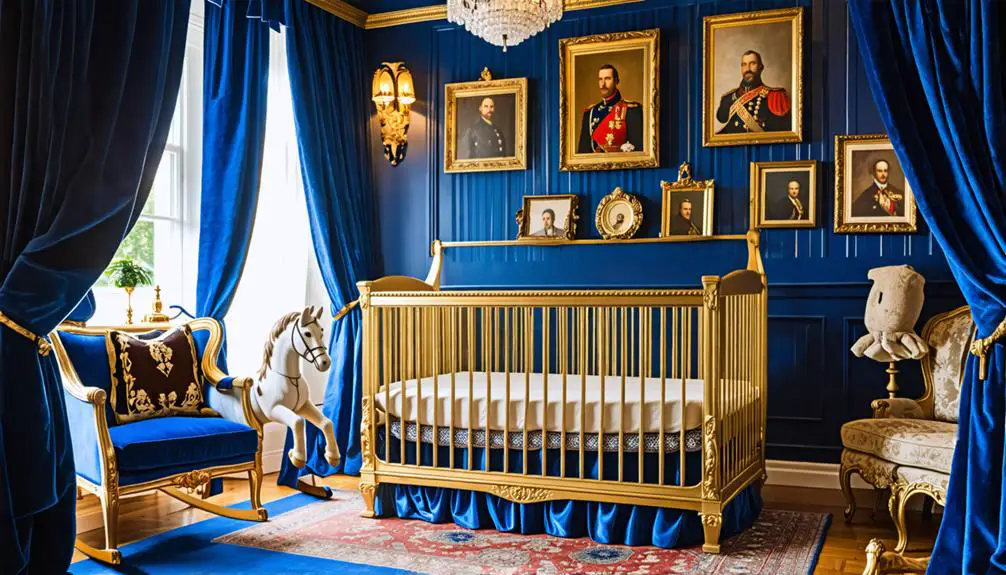
When exploring royal names for boys, you'll find a rich tapestry of history and tradition woven into each choice, from classic favorites to modern adaptations.
Names like William, George, and Henry have long been staples among English monarchs, symbolizing strength and legacy. The name Charles, currently held by King Charles III, showcases continuity in royal lineage.
James connects to King James I, while Edward has been borne by three English kings, emphasizing the importance of heritage. Unique names like Malcolm reflect Scotland's royal history.
Today's royal families are also embracing contemporary choices, with names like Archie and Louis breaking from tradition yet still honoring their royal roots, blending the old with the new.
Royal Names for Girls
Throughout history, royal names for girls have often reflected strength, elegance, and enduring legacy.
For a royal baby girl, names like Elizabeth and Anne carry the weight of powerful queens and their remarkable stories. You might consider Charlotte, a popular choice that's been embraced by the current Princess of Wales, symbolizing classic charm.
Beatrice is another lovely option, meaning 'she who brings happiness,' famously worn by Queen Victoria's daughter. If you're drawn to noble names, Isabella, a variant of Elizabeth, has historical ties to various queens across Europe.
Each of these names not only honors royal lineage but also embodies a timeless appeal that resonates through generations.
Trends in Naming Choices
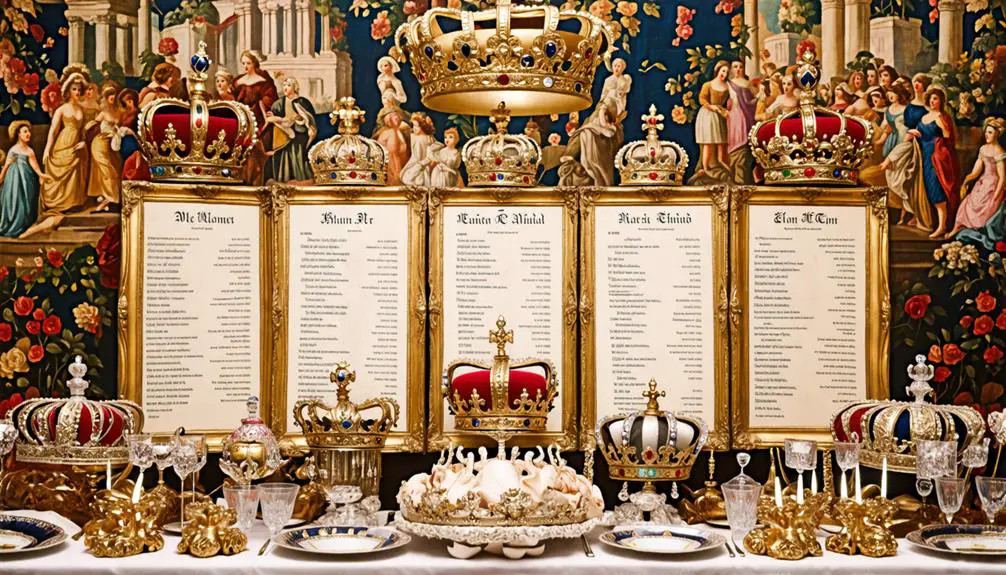
Names for royal babies are evolving, reflecting a blend of tradition and modernity that captures both heritage and contemporary tastes. You'll notice that royal baby names often honor historical significance, linking to lineage while embracing personal preference. Recent trends show a shift towards names like Archie and Zara, which emphasize modernity and aspirational qualities. Classic names such as George and Charlotte remain popular, showcasing their timeless appeal.
Here's a quick overview of current naming trends:
| Trend | Examples | Significance |
|---|---|---|
| Modernity | Archie, Zara | Reflects contemporary tastes |
| Historical Ties | Lilibet, Diana | Honors past monarchs |
| Classic Revival | George, Charlotte | Timeless appeal |
| Cultural Ties | Sienna, Amara | Aspirational qualities |
| Personal Preference | Unique choices | Balances tradition and individuality |
Overview of Recent Royal Names
Royal families have embraced a diverse range of names recently, reflecting both personal significance and historical reverence. You'll notice how these modern royal names often pay tribute to previous generations, blending tradition with contemporary influences.
Here are some notable examples:
- Charlotte Elizabeth Diana: Honors both Queen Elizabeth II and Princess Diana.
- Archie Harrison: A modern choice for the Prince and Princess of Wales' son.
- Lilibet 'Lili' Diana: A heartfelt nod to the beloved matriarchs.
- Ernest George Ronnie: Incorporates family lineage with strong meanings.
These naming practices showcase a thoughtful connection to royal history while embracing modernity in naming royal babies.
Conclusion
As you explore the fascinating world of royal baby names, you'll notice how history, culture, and modern influences shape these choices.
For instance, when Prince Harry and Meghan Markle chose the name Lilibet for their daughter, they honored Queen Elizabeth II while also embracing a personal connection.
This blend of tradition and individuality reflects a broader trend in royal naming practices, inviting you to reflect on how these names resonate beyond the palace walls and into everyday life.

